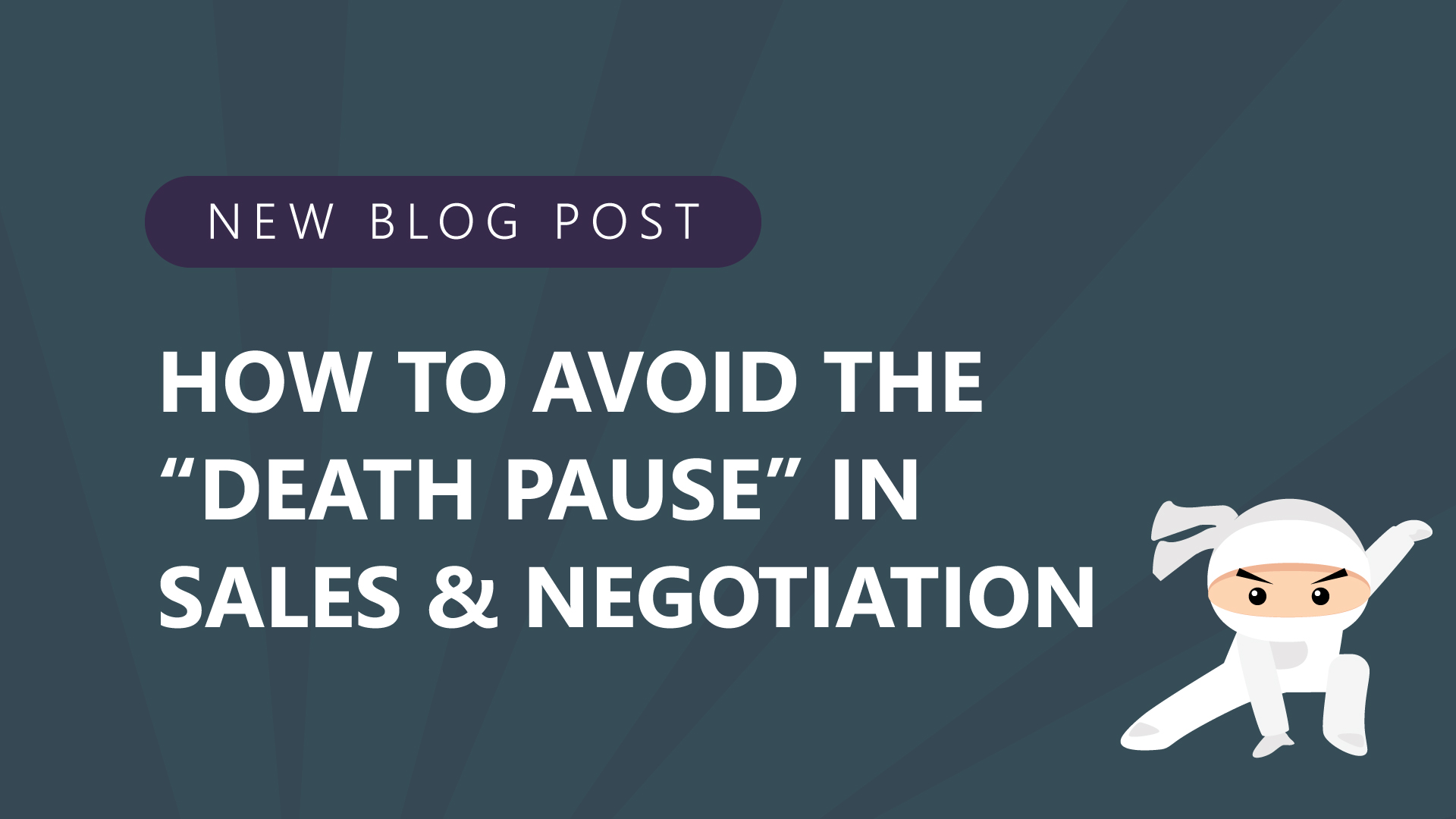Jason Cutter is a mindset and scalability expert who helps sales teams be more effective. And one of the biggest mistakes that Jason sees is the death pause. What is it? How can you avoid it?
What is the death pause?
When you come upon an objection like “It’s too expensive,” most salespeople try to answer the objection, ramble on, and stop abruptly. Then, there’s the death pause.
The salesperson is hoping that something they said will land and resonate and that you’ll move forward. The problem is that in that gap, you are letting someone think about what you said and come up with other objections.
To get someone to buy something that they’ve never bought before, someone has to change. People are afraid of change. They hate it. Going to a new restaurant requires change. Going to a new city requires change. Buying something new requires change. The brain hates change.
If your customer is still a prospect, they’re stuck in their comfort zone. Their brain is trying to keep them safe. To the brain, change equals death. People are always fighting these subconscious desires. So when you pause, their brain is quickly spitting out more objections.
How to combat the death pause
So what do you do instead? Return to the question you originally asked. Objections come up when you’re finally getting somewhere real. You’re trying to get them to book a demo, or you’re asking them to fill out paperwork. You’ve hit a nerve, and your prospect responds with questions, objections, or concerns. So address the objection and then immediately return to your initial question.
Unskilled salespeople can only uncover so many objections until they lose. You have to control the conversation and move forward. You cannot pause. But that’s just part of the problem. You also have to change your mindset.
Mindset problems salespeople face
When Jason first started in sales, he thought he knew what a salesperson had to do to be successful. Jason thought he had to use those sleazy salesman tactics, like manipulation. Or—on the opposite side of the spectrum—you just hope that people like you enough to buy from you.
Another problem is a lack of training and coaching. Most salespeople receive product training and then their companies push them out the door without training them on mindset.
Many people walk into sales jobs knowing what they don’t want to be. So they don’t do a lot of things they should be doing because they don’t want to push the line. In the process, they’re letting customers down.
Find success through authentic persuasion
If you’re only closing 10% or fewer sales, you’re only closing the deals anyone can close. Your company isn’t winning. Jason firmly believes you can change that, which is why he wrote a book about it. You don’t have to be born a salesperson to be successful. Learn more about ethical tactics and authentic persuasion in sales in episode #377 of Negotiations Ninja!

